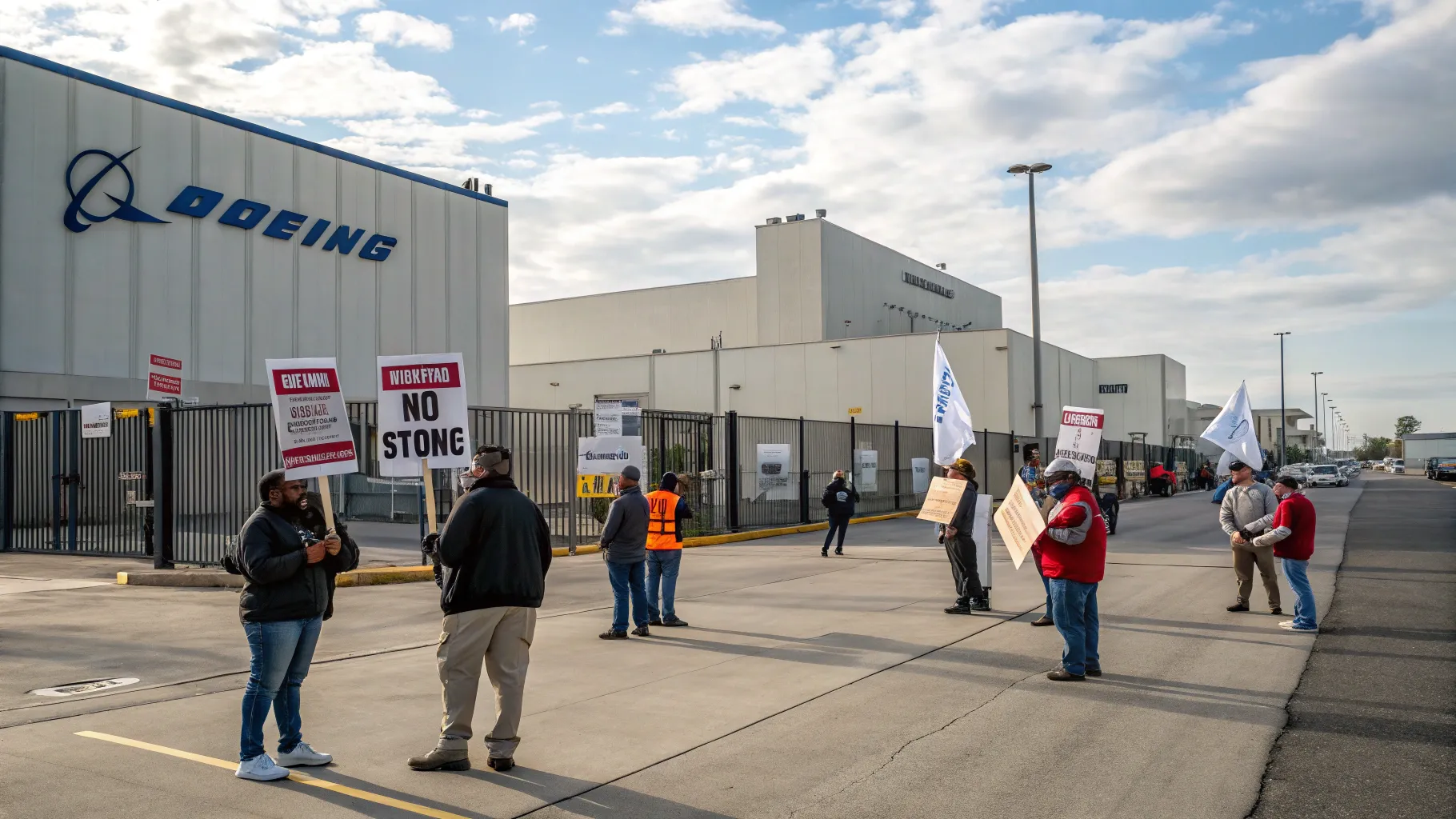Boeing workers at three Midwest plants have rejected another contract proposal, extending their strike, which has now lasted nearly six weeks. The Friday vote against the company’s latest offer would mean employees will continue picketing at facilities where military aircraft and weapons are developed.
The rejection marks a significant setback in negotiations between the aerospace giant and its workforce, as both sides remain at an impasse over terms. This prolonged labor dispute is affecting production at key defense manufacturing sites across the Midwest region.
Strike Impact on Defense Production
The striking workers are employed at three Boeing facilities that focus on military aircraft and weapons systems development. These plants play a critical role in Boeing’s defense division, which manufactures various products for the U.S. military and international customers.
As the strike approaches its sixth week, concerns are growing about potential delays in defense contracts and military equipment deliveries. Boeing has not publicly detailed the full impact of the work stoppage on its production schedules or financial performance.
Industry analysts note that extended manufacturing disruptions could have ripple effects throughout the defense supply chain, potentially affecting military readiness and international defense commitments.
Failed Negotiations
Friday’s vote represents at least the second failed attempt to reach an agreement between Boeing and the striking workers. Details of the rejected proposal have not been fully disclosed, but labor disputes typically center on wages, benefits, job security, and working conditions.
Union representatives have maintained that workers deserve better compensation and benefits given Boeing’s position as a major defense contractor. The company, meanwhile, faces pressure to control costs amid competition in the aerospace and defense sectors.
Neither side has publicly indicated when negotiations might resume following this latest setback.
Broader Labor Context
The Boeing strike is occurring amid a period of increased labor activism across multiple industries in the United States. Workers in sectors ranging from automotive manufacturing to healthcare have engaged in work stoppages over the past year, seeking improved wages and working conditions.
Labor experts point to several factors driving this trend:
- Inflation eroding purchasing power of existing wages
- Strong labor market giving workers more leverage
- Record corporate profits creating expectations for higher compensation
For Boeing specifically, this labor dispute comes as the company continues to navigate challenges in both its commercial and defense divisions. The manufacturer has faced scrutiny over quality control issues in its commercial aircraft while working to maintain its position in the competitive defense contracting landscape.
The strike also highlights the ongoing tension between major defense contractors and their workforces, as companies balance shareholder expectations with employee demands in an industry critical to national security.
As the strike continues, both Boeing and union representatives face mounting pressure to find a resolution that addresses worker concerns while allowing production to resume at these critical defense manufacturing facilities. For now, workers remain on the picket lines with no immediate end to the dispute in sight.







